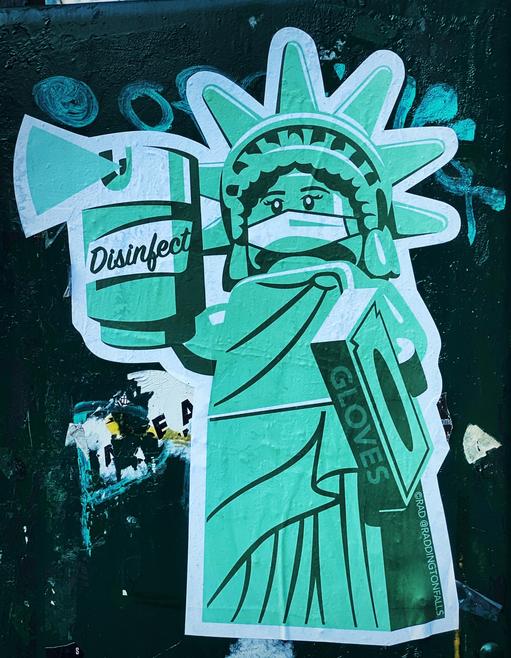Dashboard
- All
-
Following
You must log in
before getting
tailored content. -
Interests
You must log in
before getting
tailored content. - Most liked
- Most viewed

Bhandal Dental Practice (Coventry)
Bhandal Dental Practice (Coventry)"Bhandal Dental Practice (Coventry) West Midlands have a range of cosmetic dental treatments to suit your requirements
- Dental implants
- Orthodontics
- Invisalign
- Braces
- Veneers
- Oral surgery
- Teeth whitening
- Facial aesthetics
- Lip fillers
- Emergency dentistry
- and much more"
Phone Number:
0247 668 6690
Business Hours:
Monday - Friday: 8:30 am – 5:30 pm
Saturday- 08:30 am – 01:00 pm
Sunday Closed
view this profile

Dental Treatment Central - Stoke-on-Trent
Private OrthodontistDental Treatment Central of Stoke-on-Trent. Private orthodontist & cosmetic dentist for braces, Invisalign, dental implants, teeth whitening, composite bonding, root canal work, endodontics, periodontics and much more
Phone Number:
01782360140
view this profile

|
|
|
|
|

Ayaansh Hospital
Best Women's Cancer Hospital | Cancer Specialist in BangaloreAyaansh is the Best Women's Cancer Hospital in Bangalore to offer all types of Gyne Cancer Treatment by the Women's Cancer Specialist in Bangalore.
view this profile

Lance R Schmidt
DDSDentists in OKC - Our goal is to be the best dental team in Oklahoma City that is engaged and trained to our God given potential for delivering the highest levels of service to our patients. We put our your best interest ahead of our own, as we help you set your goals and give you options for each level of treatment. You choose the level of care you want, so you can truly experience dental freedom.
view this profile

Dr Sri Gada
Dr Sri GadaDr Srinivas (Sri) Gada has been a Consultant Paediatrician with expertise in Childhood Neurodevelopmental Disorders and Paediatric Neurodisability for 14 years.
Dr Sri Gada worked as Consultant Community Paediatrician with an interest in Neurodisability at Oxford University Hospitals NHSFT, for nearly 14 years (2005-2019). He practiced in the NHS (National Health Service), for nearly 25 years. He has been a Hon Senior Clinical Lecturer at University of Oxford since 2007. He has also served in NHS in other roles such as Consultant Appraiser, Clinical Governance Lead, Educational Supervisor and Clinical Supervisor for over 12 years.
view this profile

Dr Assessment
Occupational Health AssessmentProviding rapid access to expert occupational health assessment services for businesses across the UK.
view this profile

- The CoVID-19 pandemic created an unprecedented global shock and killed hundreds of thousands
- Nations responded by closing their borders, implementing stringent lockdowns and saying the world is at war with a common invisible adversary
- Responses to the outbreak diverged in the different regions of the world
- Asian countries responded rapidly and effectively
- The US and UK responded slowly and ineffectively
- Observers suggested that the divergent responses to CoVID-19 signal a shift in power and influence from West to East
- National responses alone are insufficient to effectively deal with the coronavirus
- Only by embracing effective international cooperation will governments protect their citizens and safely exit the CoVID-19 crisis
National leaders have described the coronavirus CoVID-19 pandemic as “the enemy”. In attempts to protect their citizens, nations turned inwards and closed their borders, implemented stringent lockdown restrictions and suggested that the world is at war with a common adversary it cannot see. The speed and effectiveness of national responses to the new coronavirus crisis differed, but not even the wealthiest, most advanced nations were able to protect their citizens. The global coronavirus crisis made millions seriously ill, killed hundreds of thousands, destroyed industries, bankrupted thousands of companies, caused economies to nose-dive and threw societies into turmoil. Only by avoiding nationalist policies and embracing effective international cooperation will governments protect their citizens and safely exit the CoVID-19 crisis.
CoVID-19 has rapidly spread throughout the world with a scale and a severity not witnessed since the devastating Spanish Flu in 1918. So-called because Spain was neutral during WW1 and was one of the few countries where journalists were free to report on the outbreak. In an era before antibiotics and vaccines, the Spanish Flu claimed the lives of nearly 0.68m Americans, 0.25m Britons and between 50 to 100m people worldwide. Adjusting for population growth, that is equivalent to between 200 and 425m today.
At the time of writing - June 2020 - neither an adequate therapy nor a vaccine has been developed and CoVID-19 remains prevalent in populations throughout the world. Even with today’s scientific advances, infectious diseases are notoriously challenging to either treat or cure: an Ebola vaccine was more than two decades in the making; despite the first cases of the human immunodeficiency virus (HIV) presenting in 1983, we still do not have a therapeutic preventative vaccine for the disease; nor do we have a vaccine for severe acute respiratory syndrome (SARS), a killer coronavirus, which also originated in China and was unknown before its outbreak in 2002.
Notwithstanding, governments have lifted lockdown restrictions in order to get their economies working again. V, U, W and L are letters of the alphabet used to describe the shape of a recovery following the economic crisis caused by CoVID-19. Stringent lockdowns forced economies into unprecedented cold storage, and no one knows what shape a recovery will take since professional forecasters have never encountered anything like the sheer magnitude of the current economic crisis.
The Bank of England’s Monetary Policy Report published in May 2020, warned that the coronavirus has caused the worst economic crisis in 300 years. So, emerging from this is unlikely to be either straightforward or quick. National responses to the coronavirus outbreak were mixed. Although it is too soon to know the longer-term effects of the virus, China, Singapore and South Korea are among the countries that responded early and effectively, while the US and UK, together with other Western European countries, responded late and less effectively. As of June 1, China, with a population of 1.4bn, had 83,017 confirmed cases and 4,634 deaths; South Korea with a population of 52m, had 11,537 cases and 270 deaths, and Singapore with a population of 5.7m, had 34,884 confirmed cases and 23 deaths.
This Commentary describes the divergent national responses to the CoVID-19 pandemic; in particular that of China, Singapore, South Korea, the US and UK. China’s more effective response might have been because Beijing benefitted from the lessons it learned after the SARS epidemic in 2002. Governments also differed in their approaches to lifting restrictions. China’s approach was slower than that of the US and more determined to make some of the unexpected benefits thrown up by the crisis permanent. Some observers perceive such variances as a difference between liberal and illiberal nations. Others view the divergences as a shift in power and influence from West to East. We suggest that the divergent responses and outcomes are a product of the capacity and legal authority of different states and reveal different mindsets and competing views about solutions. We also contend that the devastation created by the pandemic will only be resolved with effective international cooperation. However, it is difficult to see this happening in the near term as the pandemic has become a theatre for a wider political disagreement between the US and China, in which other nation states are being forced to take sides.
China, Singapore and South Korea leveraged the collectivists mindset of their citizens, their centralised authority and digital infrastructures to quickly implement the gold standard “test-trace-and-isolate” strategy to reduce and control the virus. The reason for such prompt actions and the subsequent relatively low number of cases and deaths in these Asian countries is described by Byung-Chul Han, a South Korean-born German Professor of Philosophy at the Universität der Künste in Berlin. In an article published on May 22, in the Spanish newspaper El Pais, Han suggests that Asian nations won the battle against the CoVID-19 outbreak because their citizens, “have a collectivists mindset, which comes from their cultural tradition of Confucianism. Asians are less rebellious and more obedient than people in the West. They trust the state more. Daily life is much more organised, and Asians are strongly committed to digital surveillance. The epidemics in Asia are fought not only by virologists and epidemiologists but also by computer scientists and big data specialists”.
Given Iran’s response to CoVID-19 has been less effective, it seems reasonable to suggest that the Confucian mindset, rather than authoritarianism, appears to provide at least a short-term advantage. In early March, at the Shia Muslim Masumeh shrine in the holy city of Qom, pilgrims licked and kissed its gates. Qom experienced Iran’s first outbreak of the coronavirus and became the country's worst-hit city. Shortly afterwards the government closed all major Shia shrines across the Islamic republic and reopened them again in late May. As of June 1, Iran with a population of 81m, had confirmed 154,000 cases of CoVID-19 and 7,878 deaths.
|
|
|
|

Best IVF Centers
Best IVF Centers in India | Best IVF Doctors & IVF Treatment in India ✅Best IVF Centers ✔️ - A platform to find the Best IVF Centres / Hospitals in India, Get Affordable IVF Treatment in India by the Most Trusted & Best IVF / Fertility Doctors near your location.
Get Fertility Treatment at the Best IVF Centers in Bangalore, Check out the 14 Best IVF Centres to get affordable Fertility Treatment in Bangalore by the Leading IVF Doctors near you.
view this profile

Rod Gillingham
Freedom Care ClinicsOur clinical team treat a range of conditions relating to the muscular and skeletal systems, delivering effective care using the latest equipment and technology. If you require a Physiotherapist, Osteopath or Chiropractor in Leeds or Manchester, we are here to help.
Along with common complaints, such as neck and back pain, sports injuries, trapped nerves and postural issues, we also offer remedial treatment for conditions such as headaches, stress, insomnia, digestive issues, neurological conditions and more.
Phone Number:
0113 345 5060
Business Hours:
Mon - 10:00 AM - 07:00 PM
Tue - Thu: 07:30 AM – 07:30 PM
Fri: 07:30 AM - 06:00 PM
Sat: 09:00 AM - 01:00 PM
view this profile








